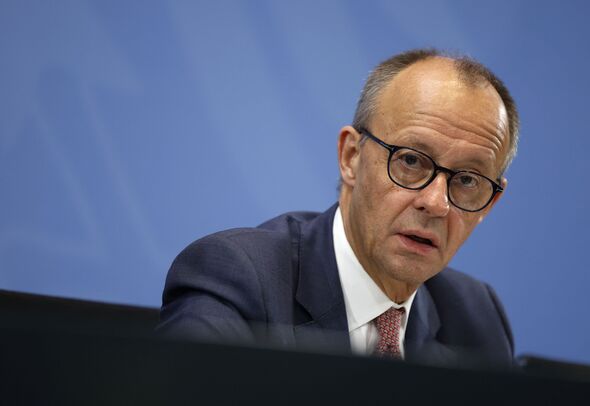World
Germany Repeals Fast-Track Citizenship for Migrants Amid Policy Shift

Germany’s parliament has officially repealed a fast-track citizenship program designed for well-integrated migrants, reflecting a notable shift in the country’s immigration policy. This legislation previously allowed individuals deemed to be “exceptionally well integrated” to apply for German citizenship after three years, instead of the usual five-year requirement.
The program was launched by the former centre-left government led by the Social Democratic Party (SPD) in 2024, with the intention to attract overseas workers to address labor shortages in various sectors. Despite its initial goals, the initiative proved unpopular and was utilized by only a few hundred applicants.
Friedrich Merz, who has become Germany’s Chancellor, pledged to reverse the policy as part of a broader commitment to tighten immigration controls. In the recent parliamentary vote, he secured 325 votes in a second ballot, surpassing the 316 votes needed for a majority in May’s election. In advance of the vote, Interior Minister Alexander Dobrindt stated that the government aimed to send a “clear signal” regarding immigration policies. He emphasized, “A German passport must come as recognition of a successful integration process and not act as an incentive for illegal immigration.”
The repeal saw support from a coalition of lawmakers, including those from the SPD and the far-right Alternative for Germany (AfD), with a total of 450 lawmakers voting in favor. Only 134 lawmakers opposed the measure. The SPD defended its support for the repeal, noting that the fast-track provision had rarely been utilized. According to a survey conducted by ARD Capital Studio, only 1.02% of all citizenship applicants in Berlin applied for the fast-track citizenship from 2024 to July 2025, translating to just 573 individuals.
Chancellor Merz’s administration has also implemented stricter border controls, contributing to a significant reduction in the number of asylum seekers. Reports indicate that illegal migration into Germany has fallen to 22,170 entries so far in 2025, down from 83,572 during the same period in 2024 and 127,549 in 2023, according to Die Welt. This decline stands in stark contrast to the ongoing challenges faced in the English Channel, where illegal crossings have surged.
With the recent policy changes, Germany’s approach to immigration appears to be shifting towards more stringent measures, potentially impacting future migration patterns and the integration of foreign workers. The implications of these changes may resonate throughout the country and beyond, as migration continues to be a pressing issue in many nations.
-

 Health3 months ago
Health3 months agoNeurologist Warns Excessive Use of Supplements Can Harm Brain
-

 Health3 months ago
Health3 months agoFiona Phillips’ Husband Shares Heartfelt Update on Her Alzheimer’s Journey
-

 Science1 month ago
Science1 month agoBrian Cox Addresses Claims of Alien Probe in 3I/ATLAS Discovery
-

 Science1 month ago
Science1 month agoNASA Investigates Unusual Comet 3I/ATLAS; New Findings Emerge
-

 Science4 weeks ago
Science4 weeks agoScientists Examine 3I/ATLAS: Alien Artifact or Cosmic Oddity?
-

 Entertainment4 months ago
Entertainment4 months agoKerry Katona Discusses Future Baby Plans and Brian McFadden’s Wedding
-

 Science4 weeks ago
Science4 weeks agoNASA Investigates Speedy Object 3I/ATLAS, Sparking Speculation
-

 Entertainment4 months ago
Entertainment4 months agoEmmerdale Faces Tension as Dylan and April’s Lives Hang in the Balance
-

 World3 months ago
World3 months agoCole Palmer’s Cryptic Message to Kobbie Mainoo Following Loan Talks
-

 Science4 weeks ago
Science4 weeks agoNASA Scientists Explore Origins of 3I/ATLAS, a Fast-Moving Visitor
-

 Entertainment4 months ago
Entertainment4 months agoLove Island Star Toni Laite’s Mother Expresses Disappointment Over Coupling Decision
-

 Entertainment3 months ago
Entertainment3 months agoMajor Cast Changes at Coronation Street: Exits and Returns in 2025









